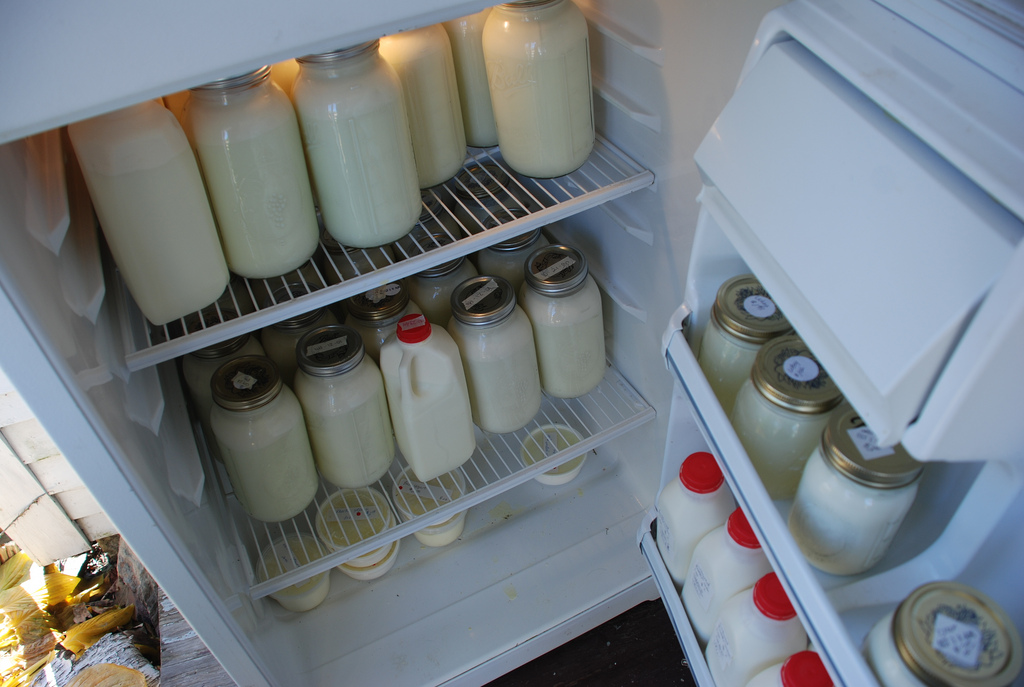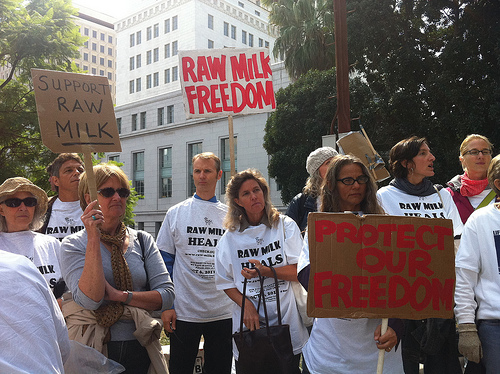This post is part of a two-part, multi-author series on the raw milk debate in Wisconsin. View the last installment, by KC Councilor, here.
About two years ago, I was home visiting my parents outside Raleigh, NC. It had been a long morning of defending my liberal political beliefs from my brother’s relentless teasing and my parents’ quiet disagreement, and I had worked up an appetite. We didn’t have much time before my mother’s appointment with her acupuncturist and weekly visit to Whole Foods, so I went to the fridge to find a quick snack. Greeted by the familiar Romney/Ryan campaign magnet, I opened the door to find a milk bottle labeled “Pet Milk, 9/10/2012.” Cheerfully, my mother explained to me that the “pet milk” was actually raw milk, and had been recently purchased through her local Community Supported Agriculture (CSA) provider. By labeling the milk as intended for animal consumption, my mother’s farmer had circumvented North Carolina’s ban on the sale of raw milk and made the product available for human consumption. I popped the plastic lid off and took a big swig. The milk was delicious–thick, creamy, and the most milky milk I had ever tasted. The Platonic milk.
By this point, my mother’s food politics were well-known to me. An ardent supporter of the whole, slow, and natural foods movements, she–and I, in case she’s reading this–believe(s) in food’s capacity to maintain healthy and productive bodies and to help cure those who are ill. My mom’s perspective on food resonates with her larger philosophy toward wellness. A regular at chiropractic, chelation, and acupuncture centers across the Triangle, she veers toward the fringes of western medicine, a position many of her conservative friends might label as “hippie.”
Or maybe they wouldn’t. Because like my mom, they perhaps go in for regular spinal adjustments and meridian releases. Perhaps they buy organic and vote Pro-Life, bemoan the state of American public school lunches and work to repeal Obamacare. Or maybe they also support the raw milk cause, not because of any belief in its superior nutrition, but because of their commitment to maintaining personal liberty.
The raw milk debate offers us a reminder that people hold complex political beliefs that don’t fall neatly along party lines. No one is all Republican or all Democrat. Instead, we are ever-evolving subjects constituted through competing and sometimes contradicting ideologies and commitments that ultimately render our political categories unstable. Unlike contentious partisan issues like reproductive rights and gun control, food has a unique ability to promiscuously cross our party lines, to create connections and coalition where there is too often hostility and dissension.




